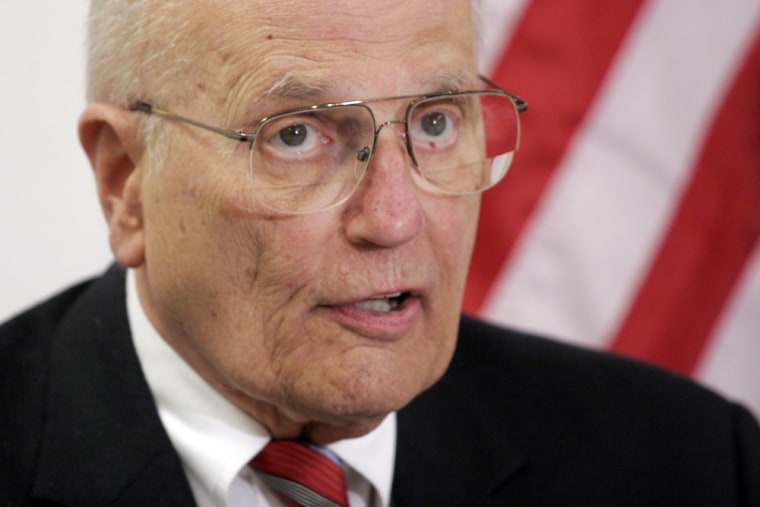The Michigan Democrat who will head the House Energy and Commerce Committee next year previewed his energy priorities: cleaner cars powered by diesel and electricity, storing waste from U.S. nuclear reactors and probing offshore federal lease deals.
Rep. John Dingell, who has been a U.S. lawmaker since 1955, also gave a strong indication of what he did not plan to do: raise fuel-efficiency standards for U.S. automobiles.
Democrats regained control of the House in Tuesday’s election and Dingell is set to take the gavel of the House Energy Committee from Texas Republican Rep. Joe Barton.
As chairman, Dingell will hold the reins of a committee that writes the lion’s share of energy legislation considered by House lawmakers, and holds wide powers to probe corporate America.
Disinclined on mileage changes
Dingell, whose home district includes Detroit’s big three automakers -- Ford Motor Co., General Motors Corp. and Chrysler Group -- downplayed the need for boosting U.S. fuel economy rules.
“I’m not sure that there’s any urgent needs for us to address those questions,” Dingell told CNBC in an interview.
Environmental groups have lobbied for doubling fuel-efficiency standards, and some Democrats are on board with that idea.
Dingell told reporters that any rule changes should weigh ”the needs, the costs, the technological ability and the economic ability of industry and the market to absorb these changes.”
The U.S. transportation sector accounts for about half the nation’s daily oil needs of about 20 million barrels.
New U.S. vehicles are the fastest and heaviest in three decades, with the fleet’s fuel efficiency no better than the figure for 1994 -- about 21 miles per gallon -- according to government figures.
However, Dingell said Congress should approve more incentives for U.S. automakers to retool cars to burn alternative fuels like ethanol and clean-burning diesel, and to make more cars that rely on electricity rather than fossil fuel.
Nuclear power 'promising'
Dingell also spoke favorably of boosting electricity produced from nuclear reactors, and called on Congress to solve the problem of where utilities can store spent nuclear fuel, which is piling up at 131 sites in 39 states while the fate of an underground repository in Nevada remains uncertain.
Dingell called nuclear energy “one of the most promising and necessary courses that we can take in terms of weaning ourselves off foreign oil.”
Dingell said Congress also needs to re-examine faulty drilling leases the government signed with energy companies in the late 1990s that so far have cost the government almost $2 billion in lost royalties.
“If you lift the lid on that you will probably find some bad smells on leasing very specifically,” Dingell said.
In those disputed leases, the Interior Department forgot to include language that would have ended a waiver of royalties when oil and gas prices reached high levels.
Without the price threshold provision in the contracts to limit the royalty break, the government could lose up to $10 billion in royalties over the life of the drilling leases.
